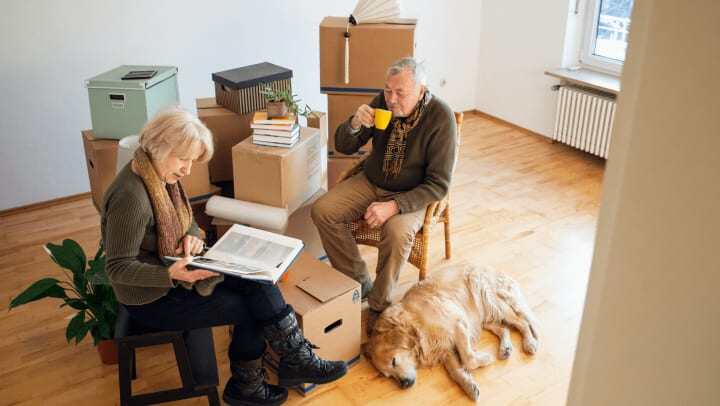
Why Now?
Benefits of Community Living

Social Connection Linked To Longer Life
One major benefit of senior living is the built-in community. Research from the National Institute of Aging shows that social isolation leads to significant mental and physical health risks. In a matter of months, being consistently alone can contribute to high blood pressure, heart disease, cognitive decline, and more.
Seniors are especially at risk if they’re dealing with the death of a partner, retirement, or loss of mobility. Living in a community with your peers isn't just a bonus perk. It can actually help you live a longer, more fulfilling life.

Daily Routine Improves Quality of Life
Many senior living communities provide daily activities, like fitness classes, concerts, crafts, book clubs, and more. Most also offer regular meals throughout the day. This helps create a structure that’s hard to achieve on your own. In fact, people of any age struggle to maintain habits. Yet, having a regular routine can help you:
- Manage stress
- Sleep better
- Eat healthier
- Stay active
Each of those benefits leads to further advantages like improved blood pressure, strengthened immune system, and more. As we age, a holistic approach to health becomes even more important. A senior living community can help by making it easy to have a fulfilling, flexible routine.

Designed for Safety and Security
Senior living communities offer safety features that most homes don’t. Details like non-slip flooring, grab bars in bathrooms, elevators, and well-lit hallways all minimize the risk of falls. Many communities also have security measures like controlled access entrances to help protect residents. These safety features create a secure environment that supports independence while giving residents and their families peace of mind.

Maintenance-Free Living
Maintaining a home requires a lot of time, energy, and money. Cleaning gutters, mowing lawns, and shoveling icy driveways can quickly become hazardous for older adults.
A major perk of senior living is the simple convenience. No more demanding tasks or costly repairs. A property manager can stay on top of maintenance and ensure consistent quality. Most importantly, you’ll have more time to spend doing what you love.

Easy Access to Healthcare
Senior living communities help remove barriers between residents and healthcare. Since Ebenezer is a subsidiary of Fairview Health Services, you’ll have access to an entire system of healthcare and services. In addition to medical care, you can also count on healthy food and regular exercise opportunities.
Some communities have on-site medical staff, regular check-ups, medication management, 24/7 emergency response, and more. When you reach out, we can help ensure you find a community that fits your needs.

Smoother Transitions
Anyone who’s been through a difficult transition will tell you, “Make a plan before there’s a crisis.” One benefit of senior living is smoother transitions. Once you’re at a senior living community, it’s easier to access higher levels of care as you need them.
At Ebenezer, we offer a full range of living options, from independent to long-term skilled nursing. Instead of having to move right into intensive care because of a health crisis, you can get established in your community and create a plan for the future.
Advice Along the Way
Moving into a new home is always stressful. But you’re not in this alone. Check out our resources on navigating the process.

Talk to a Senior Living Expert
Wondering whether it's time to move into assisted living? Leave a message for our senior living team, and we can help answer your questions.



